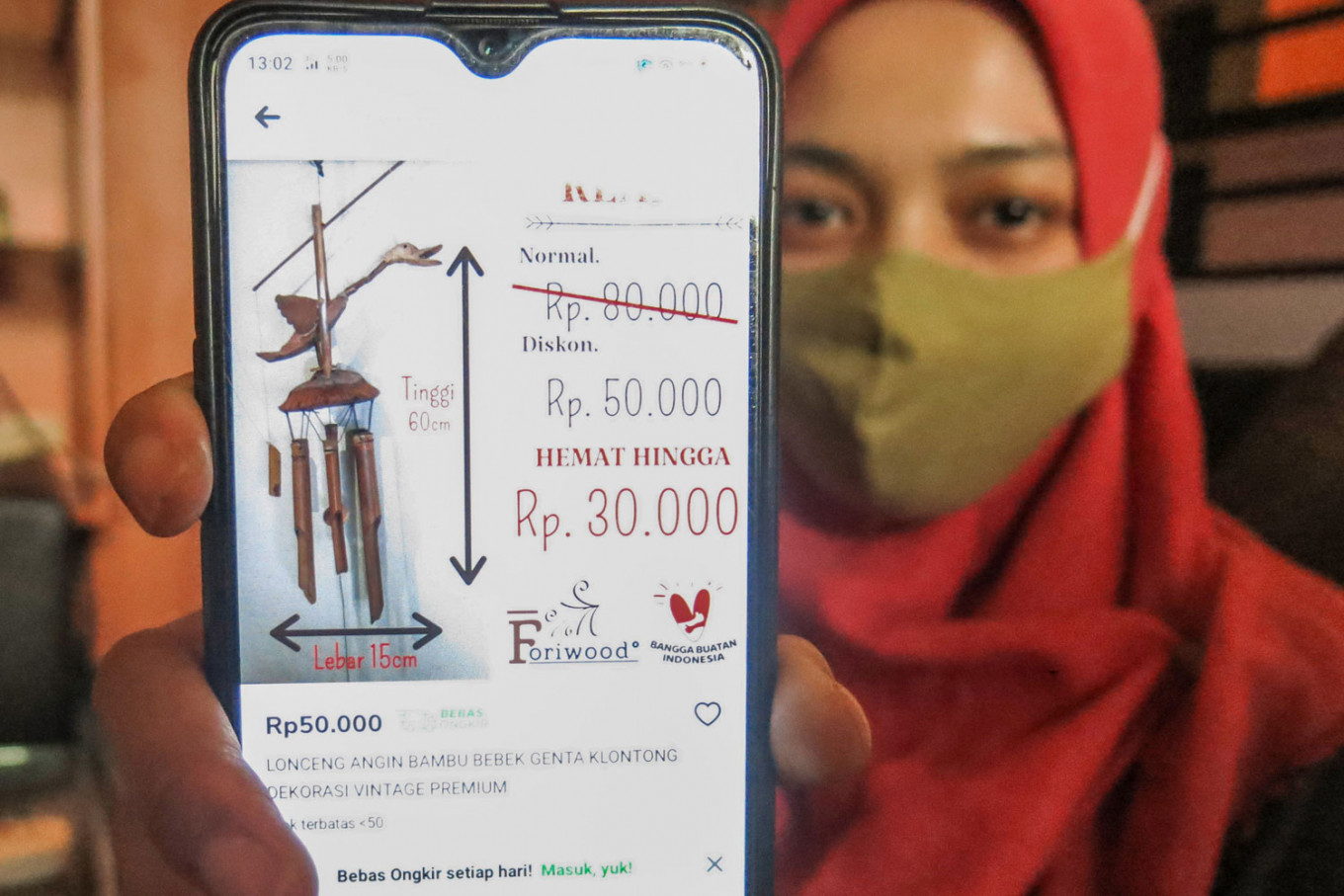Popular Reads
Top Results
Can't find what you're looking for?
View all search resultsPopular Reads
Top Results
Can't find what you're looking for?
View all search resultsE-commerce predatory pricing myth hurts everyone
Foreign manufacturers’ small digital market share should therefore diminish the likelihood of predatory pricing.
Change text size
Gift Premium Articles
to Anyone
T
he Trade Ministry’s concern that predatory pricing practices in Indonesia’s digital marketplaces are threatening small businesses is unfounded, and responding by restricting online imports would harm both domestic consumers and micro retail enterprises.
In response to concerns that foreign producers had been setting predatory prices far below their actual production costs so as to drive domestic producers out of business and secure market power, the government lowered the import duty threshold for cross-border transactions in early 2020.
A further barrier to foreign products in Indonesia’s digital marketplaces is in the pipeline as the Trade Ministry is currently working on a revision to a 2020 regulation that would put restrictions on the import of goods to be traded online.
There is a fundamental fallacy in this decision. The government has not produced any evidence that predatory pricing has been taking place on Indonesian e-commerce platforms.
Price reductions achieved by cutting back on inefficient production costs are not only fair but even desirable to stimulate efficiency on a larger scale. Likewise, scaling up production to lower per-unit costs is also not predatory pricing.
If a firm manages to gain a larger market share simply because of its high productivity or smart cost management, labeling them “predators” sets a dangerous precedent for the economy as it would obstruct competition and hamper innovation in the market.
In principle, predatory pricing must meet three conditions: that the predatory firms charge below-cost prices, that they push out competitors to gain market dominance and that they charge excessive prices afterwards to recoup their losses. The absence of these elements makes slapping on a predatory pricing label unjustified.
Admittedly, differentiating between predatory pricing and competitive pricing is an arduous task. The Business Competition Supervisory Commission (KPPU) has issued guidelines with different testing options to determine whether predatory pricing may be behind a low price.
The main study that the government has touted as the basis for its actions is one that was presented at the 2021 Davos Agenda on how domestic hijab producers were being run out of business by an influx of Chinese-imported hijab.
The study, however, was hardly about predatory pricing, nor did it advocate restrictive measures, as it put long-term investment and support for small and medium enterprises (SMEs) to improve productivity at the heart of its recommendations.
Data from e-commerce platform providers also contradicts the government’s narrative. While the majority of products in Indonesian e-commerce are indeed foreign-made, big e-commerce providers like Bukalapak, Tokopedia, Blibli and Shopee have confirmed that over 90 percent of their merchants are Indonesians, meaning that these goods are mainly being traded by domestic businesses.
Foreign manufacturers’ small digital market share should therefore diminish the likelihood of predatory pricing, as it would be highly inefficient for them to outcompete the large share of domestic businesses using only a price instrument.
Further, the high concentration of local retailers in the marketplace also signals that a quota on imported products in the marketplace is bound to hurt not just the demand side but also retailer SMEs. Thus, the option should be put at the very bottom of policy makers’ list.
Instead, support for SMEs should be the center point of the revision to Ministerial Regulation No. 50/2020. Reducing barriers to entry in the digital market by reconsidering the requirement for an e-commerce license (SIUPMSE) for online sellers would be a promising starting point.
This could kill two birds with one stone, encouraging more SMEs to join and benefit from the digital marketplace and disincentivizing predatory behavior. Low entry barriers would make it unlikely for predatory firms to later overcharge consumers to recover their losses, as this would only attract new players who could offer lower prices.
In conclusion, if the Trade Ministry remains unable to prove the presence of predatory pricing, punishing low prices in the market would be a dangerous maneuver. It would not only be harmful to both consumers and domestic SMEs but would also result in an upward deviation from the market equilibrium price.
Support for SMEs by way of excluding them from the e-commerce licensing requirement is a far more justifiable strategy to help them nurture their businesses and increase their productivity, while also strongly discouraging and preventing predatory behavior.
***
The writer is a researcher at the Center for Indonesian Policy Studies (CIPS). The views expressed are personal.










